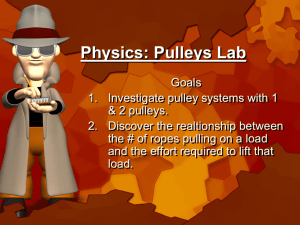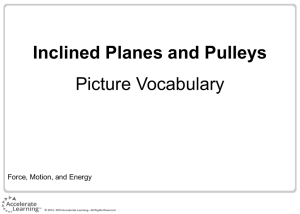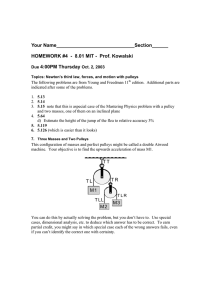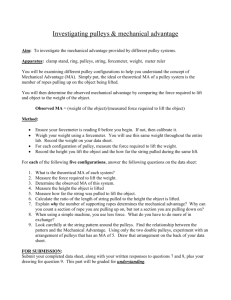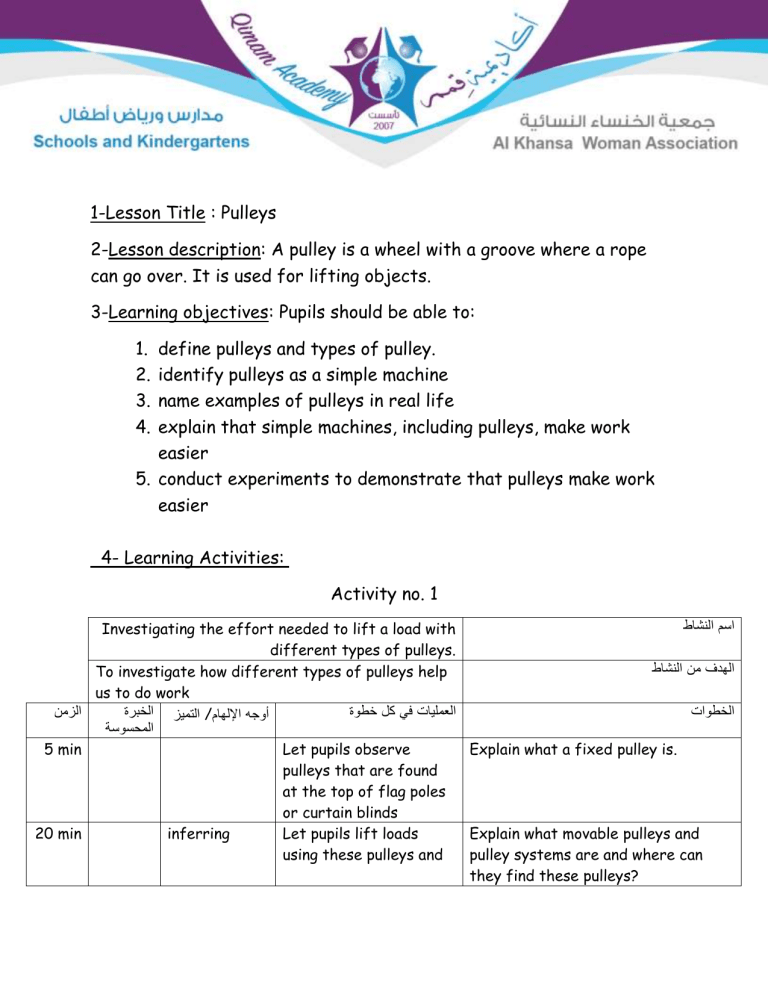
1-Lesson Title : Pulleys 2-Lesson description: A pulley is a wheel with a groove where a rope can go over. It is used for lifting objects. 3-Learning objectives: Pupils should be able to: 1. 2. 3. 4. define pulleys and types of pulley. identify pulleys as a simple machine name examples of pulleys in real life explain that simple machines, including pulleys, make work easier 5. conduct experiments to demonstrate that pulleys make work easier 4- Learning Activities: Activity no. 1 اسم النشاط Investigating the effort needed to lift a load with different types of pulleys. الهدف من النشاط To investigate how different types of pulleys help us to do work الزمن التميز الخبرة/أوجه اإللهام العمليات في كل خطوة الخطوات المحسوسة 5 min Let pupils observe Explain what a fixed pulley is. pulleys that are found at the top of flag poles or curtain blinds 20 min inferring Let pupils lift loads Explain what movable pulleys and using these pulleys and pulley systems are and where can they find these pulleys? 20 min 1 period infer their characteristics. Uses of Observing 1-Set up the apparatus Get pupils to perform A.B.P 14-15 spring in the diagram in the balance A.B.P 14 (use the 200 g Inferring mass as the load) 2- pull the spring balance to lift 200g mass using the single communicating fixed pulley and observe the least effort needed to lift the load and record it in the table. repeat using different loads. 3- repeat step 2 with a single movable pulley and pulley system. 4- from your investigation, draw conclusions about the effort needed to lift a load using different types of pulleys. Applying Use an empty cardboard Working Model Of Pulley Lift box ,string and pulley to build the model of pulley lift . 5- Learning Time: Monday (21/2): Aim # 1-3 Tuesday (22/2) : activity 1 Sunday (27/2): Working Model of Pulley Lift tuesday (1/3) : Video 6-Materials & Resources: White board, course book, retort stand, two pulleys, spring balance, string, 200g mass, 400 g mass, 600 g mass. 7-Assessment tools: worksheet, asked oral questions 8-Reflection and feedback
